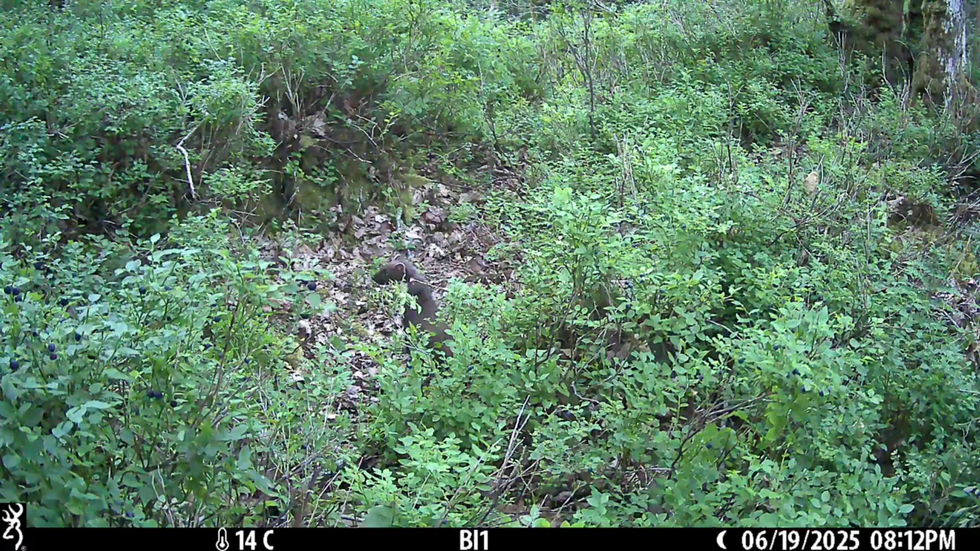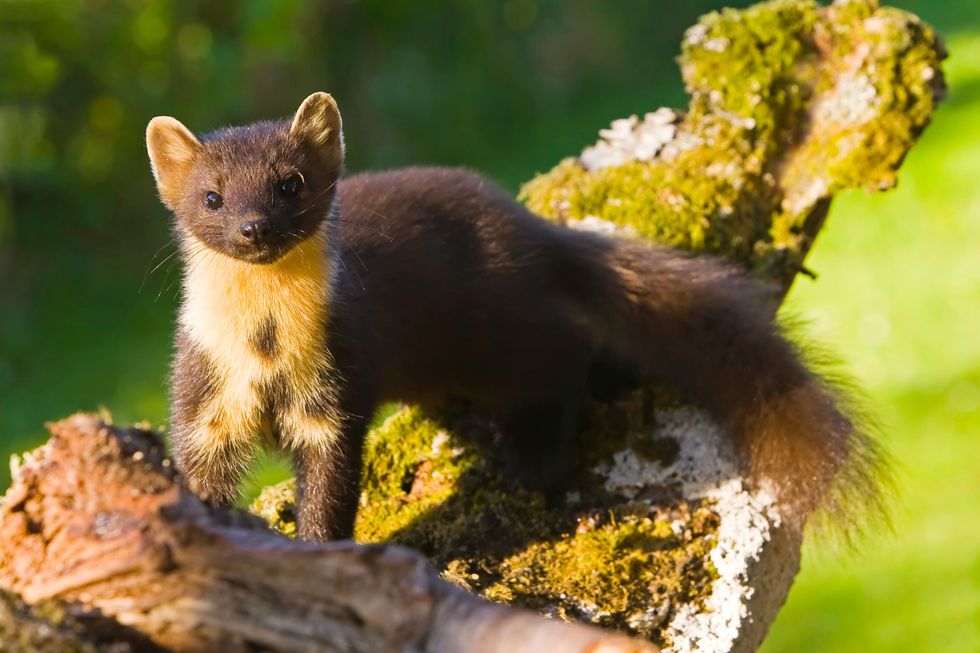
Pine martens reintroduced to Dartmoor have produced their first young, with camera-trap footage capturing shots of kits scampering through woodland.
Conservationists behind the project to return pine martens to the south west of England after a 100-year absence have said they were “ecstatic” to see the reintroduced animals had successfully bred.
The discovery comes after 15 pine martens – eight females and seven males – were released at undisclosed Dartmoor locations in autumn 2024, as part of efforts to restore the species to the area.
Pine martens were once common in the South West, but were hit by the loss of their woodland habitat and by human persecution, conservationists said.
The Two Moors Pine Marten Project partnership, a collaboration of groups which is behind the reintroduction, and its local volunteers, have spent hundreds of hours tracking the movements of the cat-sized animals, installing den boxes for them and checking camera traps to see what they are up to.

Two films show young pine martens, known as kits, exploring their new Devon home, with one clip revealing three kits chasing each other through leaves and up a bank in a Dartmoor woodland, and other of the same family of a mother and two kits running along a fallen tree close to a stream.
Experts said female pine martens usually give birth to two or three kits in spring, with youngsters spending their first seven to eight weeks hidden in dens before emerging in early summer, and sticking with their mothers until the following spring.
The conservationists behind the project said the population in the South West should now grow gradually over coming years, and the team is preparing for a further release of pine martens at secret locations in Exmoor this autumn.
This is a historic moment for the return of a native animal and for the future of the South West’s woodlands
Tracey Hamston, Devon Wildlife Trust
Devon Wildlife Trust’s Tracey Hamston, who leads the Two Moors Pine Marten Project, said: “When our volunteers discovered the footage of pine marten kits on one of our trail cameras we were ecstatic.
“This is a historic moment for the return of a native animal and for the future of the South West’s woodlands.
“To have breeding pine martens back after a century’s absence signals a positive step in nature’s recovery.
“It’s also testament to the many hours work undertaken by the project partnership and dozens of local volunteers.”
Jack Hunt, Woodland Trust assistant site manager for Devon, said staff and volunteers have been checking camera traps for several months, and over the past few weeks had been “eagerly anticipating” spotting kits on the films.
“This sighting is wonderful news.
“The work over many years to restore and improve the condition of our woodlands, to support other landowners to do the same and work in partnership on this project has culminated in the return of the pine marten born in its natural environment in Dartmoor, the first of many and the beginning of the return of this missing species.”
The partnership involves Dartmoor National Park Authority, Devon Wildlife Trust, Exmoor National Park Authority, Forestry England, National Trust, Somerset Wildlife Trust and Woodland Trust, backed by the National Lottery Heritage Fund and supported by the Vincent Wildlife Trust.













